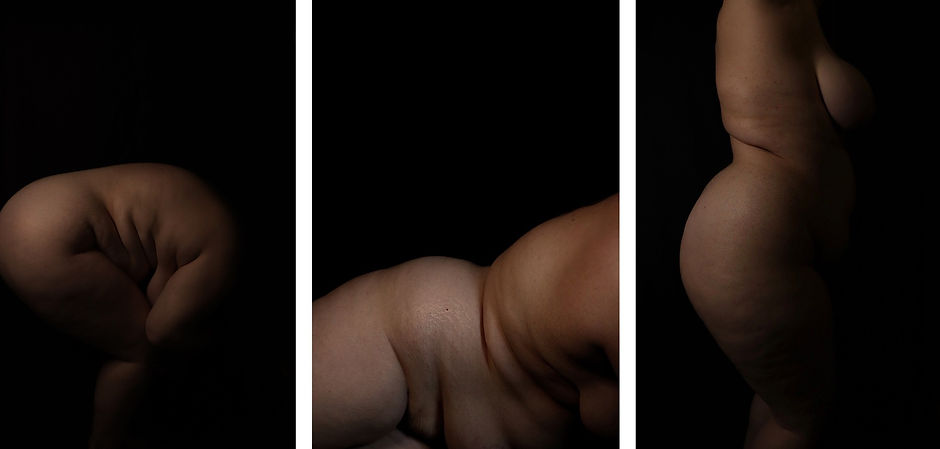Chantal Croze
My Work Showcase


Bio
I have been exploring my relationship to how my body functions in a world where it is sexulized and objectified on a daily basis as well as telling the stories of friends and family members who have gone through sexual harrasment. By telling these stories and photographing these women I have begun addressing the important issue of intergenerational trauma and showcasing perspectives of women who face the pressures of misogyny and sexualization in western culture. I want to continue the theme of working with bodies and instead of focusing on personal stories, shift to those of others with the idea of allowing people to speak on situations of sexual assault, harrasment and abuse. Highlighting peoples stories and allowing them space to tell these stories is super important to me and my practice. I have presented these ideas with a focus on my body and female bodies in two different photographic projects. "Stop sexualizing women without their consent" (2018) is a series of photographs of various women in my life in lingerie doing daily activities with a message above reading “Stop sexualizing women without their consent.” Another photo series I did was to photograph my nude body with personal stories of sexual assault and abuse hand written over the images this series was titled “Enough “(2019). A recent project I worked on was a film titled “We are Worthy” (2020) where me and my brother discussed insecurities we have with our bodies as well as addressing unintentional gender roles/ body ideals we had forced upon us by our parents.
My work is in dialogue with the history of contemporary feminist discourse in that it is exploring similar ideas other female artists work with in the case of Cindy Sherman and Sarah Lucas. Sherman and Lucas are two prominent female photographers who explore sexuality, performance and gender and influence my practice by opening up possibilities for furthering the critique of feminism and sexual objectification. My most recent project is a photographic series of people recreating scenes where they were sexually assaulted, harassed or abused. The photographic series is accompanied by text of the people telling their stories, as well as a voice recording of them saying what happened. I want the people I am photographing to be able to tell their stories in their own voices and take back the power that was taken from them when they were harassed or assaulted. Being able to have your voice heard in any context is important but especially on sensitive topics where when you hear in the “models” own voices telling what happened to them, adds another another mode of understanding to the vastness and importance of talking about sexual assault has. Exploring new ways to empower viewers about situations that so many people go through is super important to me and helps shine a light on these issues and showcase and help others see that they are not alone. Discussing difficult topics in art creates conversation and making work that feels vulnerable will hopefully produce imagery that will create conversation and bring light to topics of assault and abuse that need to be heard.












